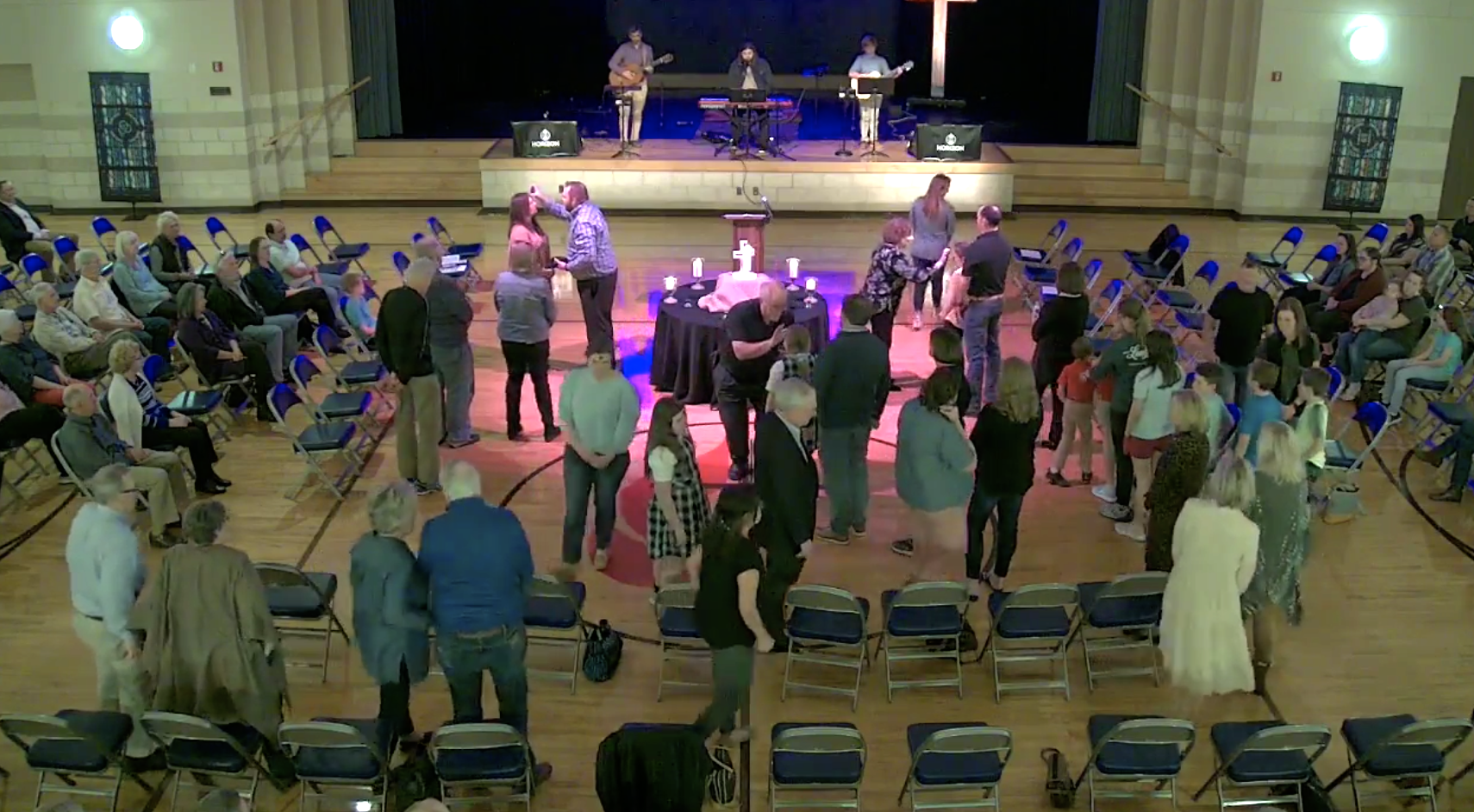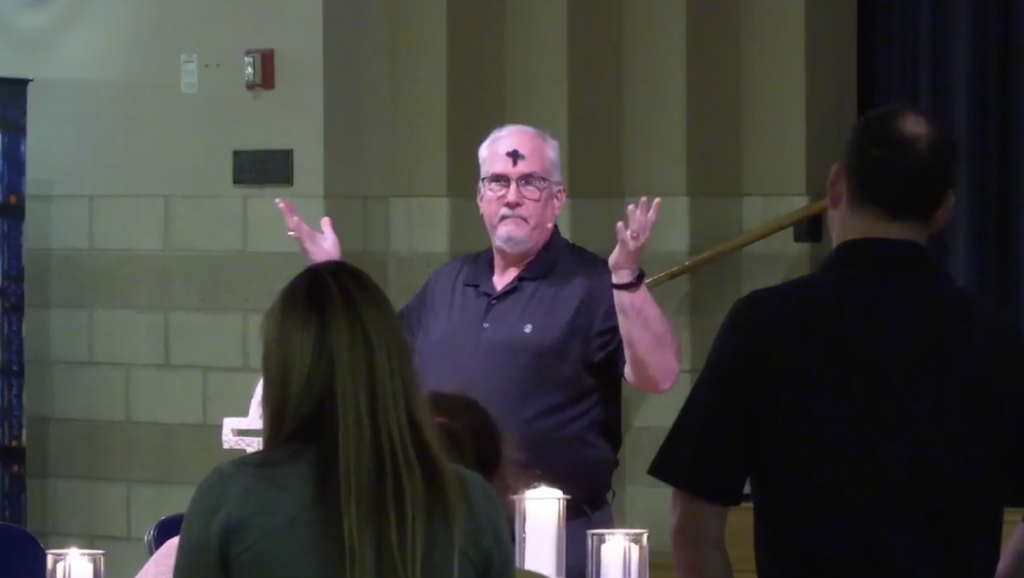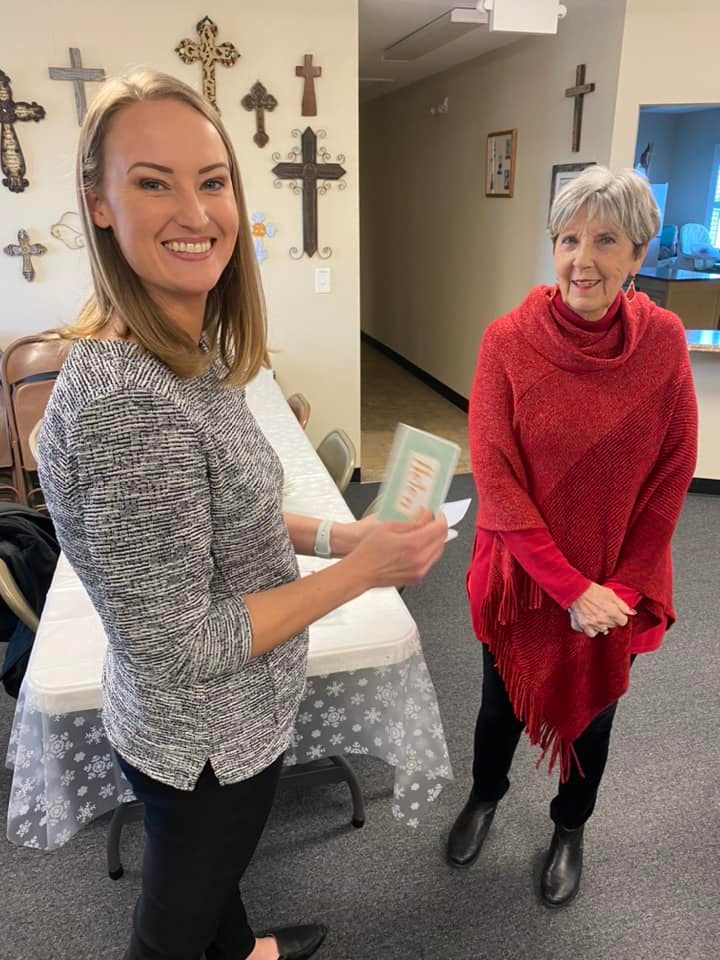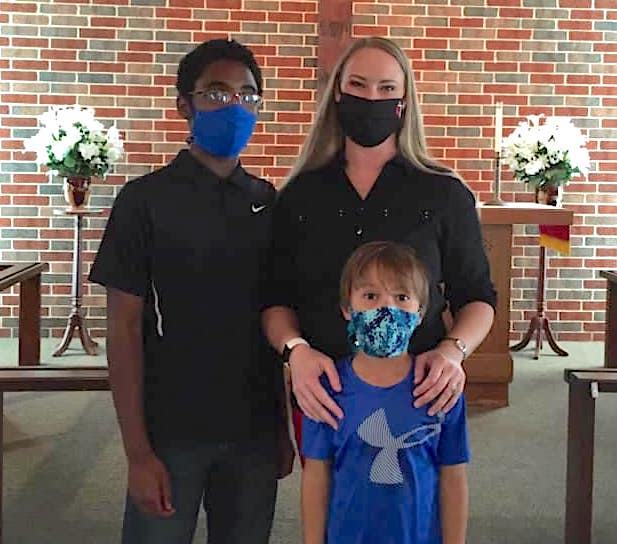
By Lindsay Peyton
Churches across the Texas Annual Conference are preparing for Ash Wednesday, which falls on Feb. 22 this year. The observance begins the season of Lent, a time of fasting, repentance and spiritual discipline in preparation for Easter. While the imposition of ashes dates back to the 10th century, the ritual did not appear in the United Methodist Church until the 1992 Book of Worship.
Jay Jackson, Senior Pastor at Longview FUMC, did not grow up with the imposition of ashes and first encountered the tradition as an adult. Now, he said, the ritual has become especially meaningful to him.
Ash Wednesday is also one of the largest, most cherished services at the congregation. “It’s become a significant part of our tradition here,” Jackson said. “It’s a special way to usher in a season of contemplation and real reflection of our life and our need for repentance.”

“Now is a time when we call ourselves to faithful discipleship,” he continued. “It’s a meaningful restart of people’s journey of faith.”
The pastor explained that Ash Wednesday can seem to be only a stark and solemn occasion, one centered on death, mortality and sin. “When you look deeper and examine it, it’s part of understanding eternal life and our gift of eternal life through Jesus Christ,” Jackson said.
He continued, “It’s about the power of God’s grace. It’s recognizing who we are and how much we need God, how grace gives us an opportunity to overcome sin. It’s the heart of who we are as Christians.”
During the imposition of ashes, Jackson keeps the tradition of saying, “Remember that you are dust and to dust you shall return.”
He also adds, “We are redelivered by God’s grace. Go and be God’s people.”
The service is in the evening, and Jackson explained that the ashes are meant to be more private and contemplative, as opposed to a conversation starter. “It’s not for show – but hopefully an impetus for real change,” he said.
Jackson tells parishioners not to simply go to Easter services but to remember that all of Holy Week is important. “If you haven’t gone with Jesus to the cross, the resurrection doesn’t have the same power,” he said.
Pastor Nicole Boddie will lead a short Ash Wednesday service at both of the churches where she serves – Sabine Pass UMC and St. John UMC in Port Arthur, Texas.

Parishioners at the two congregations look forward to the service each year, she explained. Even though it is a solemn occasion, one focused on repentance and mortality, there is hope ahead – the promise that comes with resurrection and celebration of Easter.
“I really like Ash Wednesday, even though it’s a difficult season,” Boddie said. “We are reminded of how God is so gracious, that God forgives me. God gives me the strength to keep moving forward through it all.”
This year, Ash Wednesday has gained an added significance for the pastor. She finds a metaphor in current events within the denomination. “In this season we are in, there is sadness and grieving on both sides,” she said.
In fact, that’s something acutely personal. Her husband, who was a minister with the UMC, has chosen to disaffiliate from the church.
Boddie, on the other hand, has felt called to stay with the UMC. In fact, she is preparing to go to seminary at Duke Divinity School. She is a licensed local pastor, who recently received her bachelor’s degree in social work at Lamar University.
“I have learned a lot after what we’ve been through,” Boddie said. “It has been hard. It has been a season of upheaval, a season of grieving. But I noticed God has been with me. God is with both of us. God is there in the toughest moments, in the midst of grief.”
There were times when Boddie felt alone and unsure of her calling. “It has been one of the most difficult seasons of my life,” she said. “Now that I have pulled out of that darkness, I am so grateful. Preaching is joyous again – and when you’re hopeful, it’s easy to preach hope.”
Chance for new beginning
Hope and excitement are contagious, the pastor said. She sees healing happening at all levels in the Texas Annual Conference – from the districts to the local churches, the clergy to the parishioners.
“I feel like there’s a chance for a new beginning,” she said. “I think God is going to give us wisdom, ideas about how to be more efficient, more creative and more innovative.”

Boddie explained that clergy have now weathered both the COVID pandemic and the disaffiliation. Many might feel burned out and exhausted.
“There’s been transition, upheaval, questioning our callings,” she said. “I still have that glimmer of hope. I have experienced God’s grace. For those still feeling sad, discouraged, angry or even in denial, all the phases of grief, I know they know there is a Holy light at the end of the tunnel, even if they can’t see it yet.”
Soon, Lent will begin, a 40-day time to reflect and pray, to remember Jesus’ trials in the wilderness before starting his ministry. Boddie explained that we think of sacrifice, our humanity and God’s love.
“We’ve all been in a dark place – but we know each season ends,” she said. “When we’re in the midst of it, it can seem never ending. But seasons come and go. It’s a cycle.”
And Easter is coming. “I know God is with us,” Boddie said. “God never turns away.”
